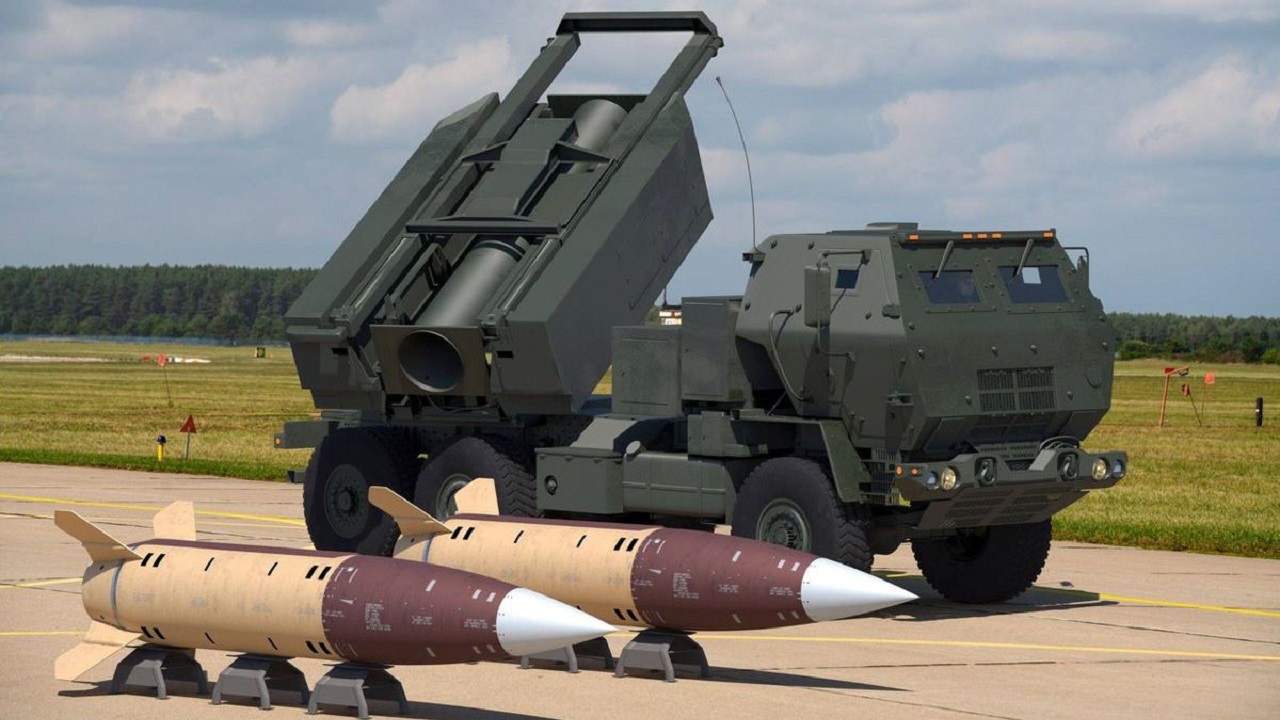Rumors circulated this week that the White House was considering giving Ukraine the long-range missile systems it has asked for since the early days of the Russian invasion, but it became clear on Thursday that President Joe Biden ultimately decided against the idea. Sources close to the White House reportedly told CNN this week that the Biden Administration is unlikely to “significantly change” its approach to helping Ukraine, even as Russia retreats and the war looks to be winnable for Ukraine.
Those rumors, however, appear to have scared the Kremlin, prompting a response this week that the supply of longer-range weapons to Ukraine would be a “red line” for Russia.
President Joe Biden disappointed Ukraine earlier this year when he chose to provide longer-range HIMARS missile systems, and not much longer-range missile systems that would have allowed Ukraine to more easily launch strikes on Russian territory. Those HIMARS systems, however, ultimately proved to be a miracle for Ukraine. Using the advanced missile systems, Ukraine successfully launched strikes on Crimea, in the Donbas region, and in Kharkiv – costing the Russians thousands of tanks and even more troops.
Putin Panics
In response to reports, Russian Foreign Minister Maria Zakharova said that Moscow “reserves the right to defend its territory,” in defiance of the West’s continued calls for the Russian president to withdraw his troops.
Then, in the latest threat to the West, Zakharova said that sending long-range missiles to Ukraine at this stage would cross a “red line.” The Russian official did not, however, state the consequences of crossing that hypothetical line.
“If Washington decides to supply longer-range missiles to Kyiv, then it will be crossing a red line and will become a direct party to the conflict,” Zakharova said.
Would Russia Attack?
The implication, of course, is that the United States would become a legitimate target for Russia if more advanced weaponry is sent to Ukraine. It’s a threat that has been issued before, directly and in roundabout ways, but one that sounds more desperate than honest at this stage. Without sufficient weaponry to hold back Ukrainian soldiers using HIMARS missile systems, Russia’s military is by no stretch capable of targeting the United States and beating the military onslaught that would follow a strike on NATO territory. It could only mean one thing – a possible nuclear strike from Russia, authorized in the hope that the United States and NATO wouldn’t respond in kind, in hope that further nuclear escalation could be avoided.
But would Russia really attack NATO in some format? It’s a threat that has been implied time and time again by Russia, and Kremlin officials just can’t get their stories straight. Two weeks ago, former Russian President Dmitry Medvedev issued yet another warning to the West of a possible nuclear war. Medvedev, the Russian president between 2008 and 2012 and current the deputy secretary of the Russian security council, claimed in a Telegram post that the West is taking “advantage” of the conflict in Ukraine with a view to eliminating Russia from the global political field.
“Those are the dirty dreams of the Anglo-Saxon perverts, who go to sleep with a secret thought about the breakup of our state, thinking about how to shred us into pieces, cut us into small bits.” Medvedev said. “Such attempts are very dangerous and mustn’t be underestimated. Those dreamers ignore a simple axiom: a forceful disintegration of a nuclear power is always a chess game with death, in which it’s known precisely when the check and mate comes: doomsday for mankind.”
If nuclear conflict really is the threat Russia is attempting to communicate with the West, however, then Zakharova and Medvedev need to communicate that with Kremlin spokesman Dmitry Peskov, who once again this month sought to downplay the possibility of a nuclear conflict with the West.
Did Biden Consider Sending Long-Range Weapons?
The White House has sent 16 HIMARS missile systems to Ukraine so far, which can strike targets at a range of 50 miles — but Ukraine wants missile systems that can travel much further.
Among the longer-range missile systems in the United States military’s inventory is the Army Tactical Missile System, or ATACMS. ATACMS surface-to-surface missiles range around 186 miles, and, if supplied to Ukraine, could easily allow the Ukrainian military to launch strikes on Russian territory – especially if those missile systems were to reach the newly liberated territories in Kharkiv, right at the border with Russia.
If the White House was considering sending missile systems like these to Ukraine, it was probably the result of Ukraine’s surprise victories in its ongoing counter-offensive.
Watching Russian soldiers flee Ukraine in huge numbers, and seeing the Kremlin admit defeat in Kharkiv, the United States government may have considered the possibility of sending these longer-range weapons to Ukraine to help its military finish the job. Such a huge decision would come with great risks, however.
Not only might the Kremlin consider the move an escalation – as was confirmed this week – but the missiles might also fall into the wrong hands if the Russians find a way to regain territory in Kharkiv and the Donbas region.
Perhaps, for now, the White House simply doesn’t think it’s necessary and assumes that Ukraine can win this fight without them. Or perhaps the White House thinks Russia could be mad enough, or desperate enough, to launch a nuclear strike.
Jack Buckby is a British author, counter-extremism researcher, and journalist based in New York. Reporting on the U.K., Europe, and the U.S., he works to analyze and understand left-wing and right-wing radicalization, and reports on Western governments’ approaches to the pressing issues of today. His books and research papers explore these themes and propose pragmatic solutions to our increasingly polarized society.

